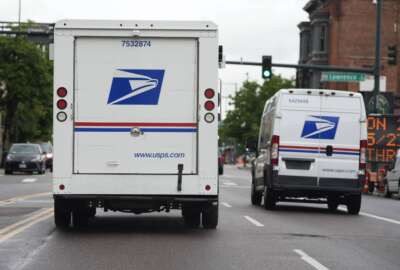

In addition to being a wireless carrier that millions rely on to access the internet and make phone calls, Verizon is a security leader that strives to meet the...
This content is sponsored by Verizon.
In addition to being a wireless carrier that millions rely on to access the internet and make phone calls, Verizon is a security leader that strives to meet the needs of public safety agencies across the United States.
“Public safety officials need priority access,” said Steve Miller, chief technology officer for The Digital Decision, a group that provides consultant services to Verizon.
The Digital Decision was founded in 2007 with the mission of establishing nationwide interoperable communications for first responders.
“Public safety officials need to be first in line in the event of a critical incident where massive amounts of people are trying to pick up their phone, make a call or send pictures,” Miller said.
In response to recent wildfires across the Southwest, Verizon sent a team to New Mexico and Arizona to provide thousands of first responders with communications capabilities.
The team deployed phones, routers and other Verizon Frontline technology, working closely with a number of agencies on the front lines of the fire response efforts, including the U.S. Forest Service.
Verizon Frontline is an advanced network and technology built for first responders that was developed to meet the unique and evolving needs of public safety officials and agencies.
“First responders can’t afford not to have connectivity,” Miller said. “That’s why Verizon implemented those features – to provide rapid access to the network to give them priority.”
With greater access to high-tech devices comes greater and more widespread cyber security threats, and Verizon has worked to protect public safety agencies, businesses and everyday consumers who may be targeted.
“We’re all acutely aware of the cyber threat that we have out there today,” Miller said.
One tool Verizon created to fight back against hackers is the annual Data Breach Investigations Report, which helps organizations understand specific threats they face so they can make informed decisions on how to protect themselves.
The latest report found that ransomware appeared in 10% of data breaches in 2021, more than double the frequency from the year before.
“This upward move was influenced by new tactics, where some ransomware now steals the data as they encrypt it,” according to the report. “That puts ransomware now in third place among actions causing breaches.”
The report found that phishing was present in 36% of breaches, up from 25% when compared to the previous year.
Verizon also tackles cyber threats by releasing its Mobile Security Index, providing insights into the current mobile threat landscape and highlighting what actions organizations are or aren’t taking to protect their data.
According to the latest MSI, even though 40% of businesses surveyed recognized that mobile devices are their company’s biggest security threat, 45% of them knowingly sacrificed the security of mobile devices to “get the job done” (e.g., meet a deadline or productivity targets).
“Nearly a quarter (24%) sacrificed the security of mobile devices to facilitate their response to restrictions put in place due to the pandemic,” the MSI found.
In many cases, public safety agencies and first responders need to follow rules regarding cyber security threats that don’t necessarily apply to other organizations.
For example, the FBI has stringent security policies that law enforcement agencies must comply with if they’re going to transmit certain criminal justice information.
“Those policies require that all states and the agencies underneath them implement requirements such as end-to-end encryption of data,” Miller said. “Regardless of the device you have – whether it’s a smartphone, a tablet or a laptop – you must have that data encrypted end-to-end to transmit sensitive criminal justice information.”
That is why such agencies must educate themselves and develop a comprehensive policy that articulates how they would respond to any potential breach of their data, according to Miller.
Conducting an audit can be helpful.
“There are folks out there – and Verizon is one of them – that can do an audit of an agency’s security compliance,” Miller noted.
For another layer of protection, agencies can utilize multi-factor authentication, a method of security that ensures only legitimate users can access information by requiring something other than just a username and password.
“While a lot of people view that as an inconvenience, it has become a necessity, not only for law enforcement and protecting their data, but for everybody accessing networks out there today,” Miller said.
Copyright © 2024 Federal News Network. All rights reserved. This website is not intended for users located within the European Economic Area.


